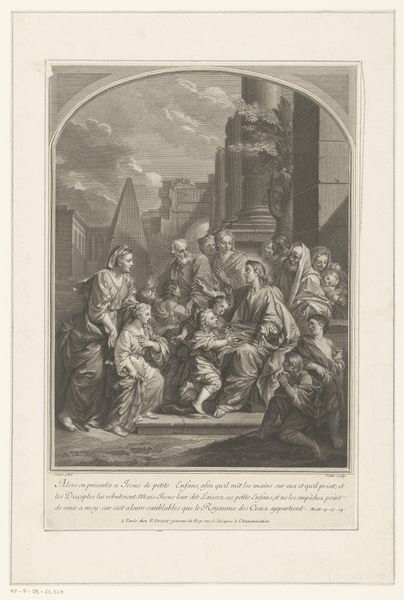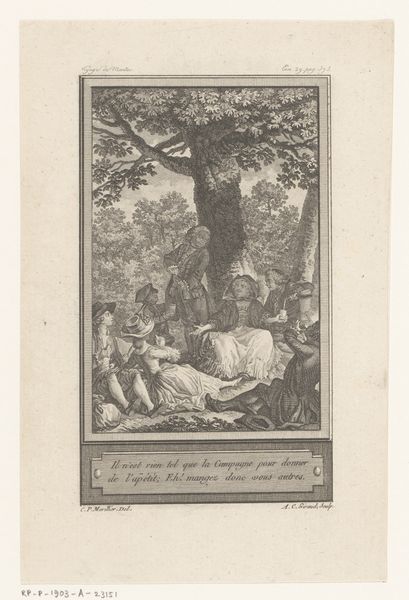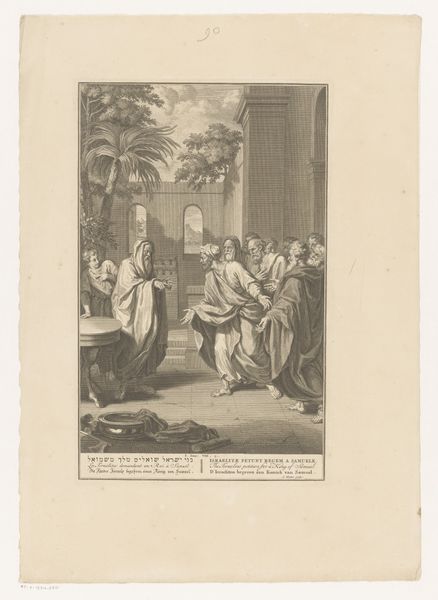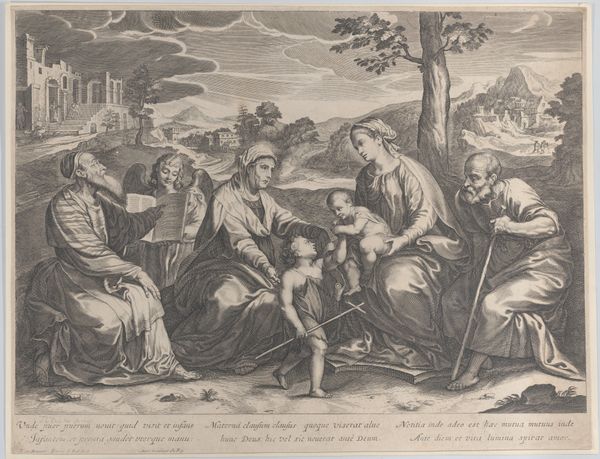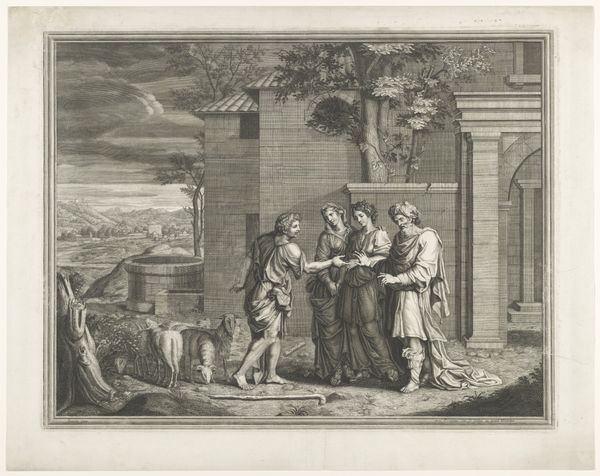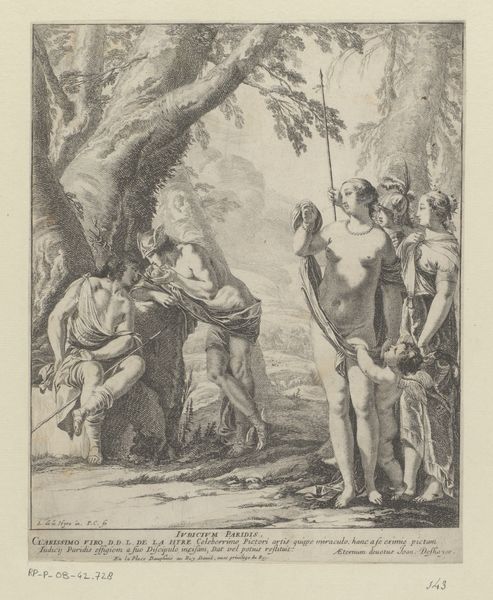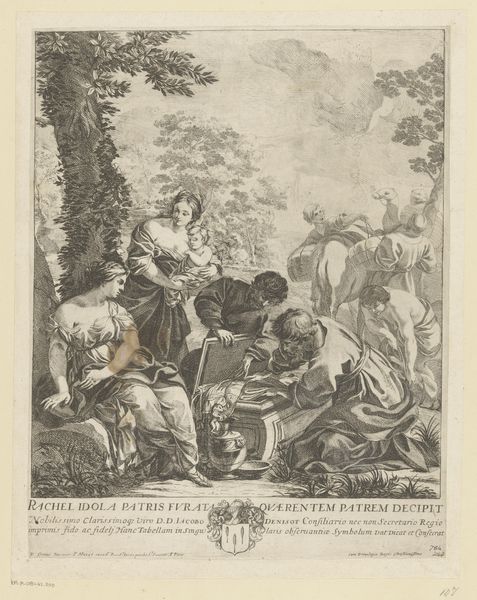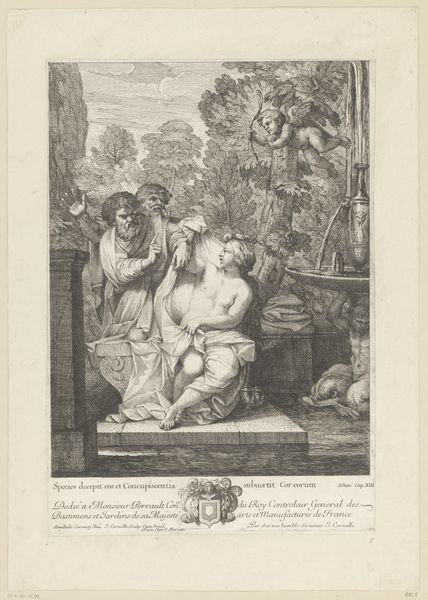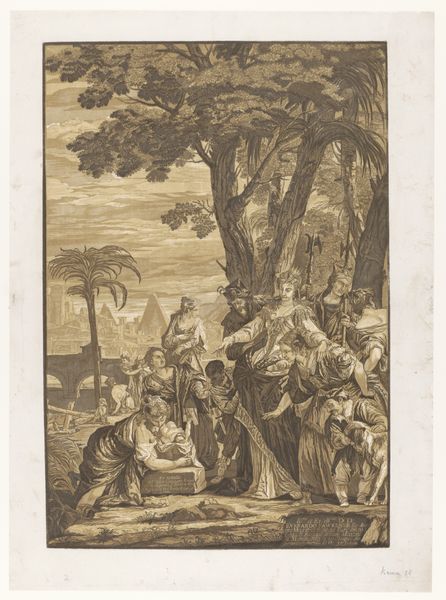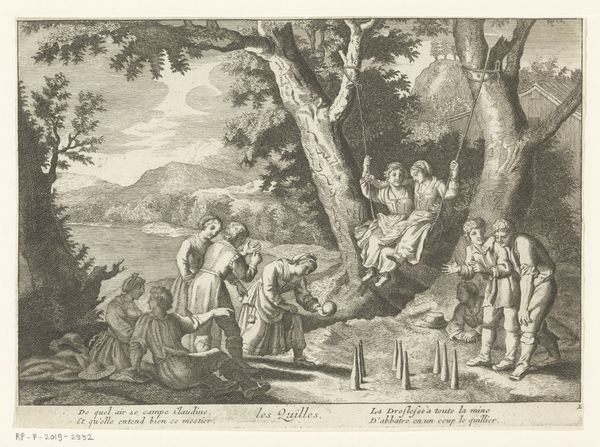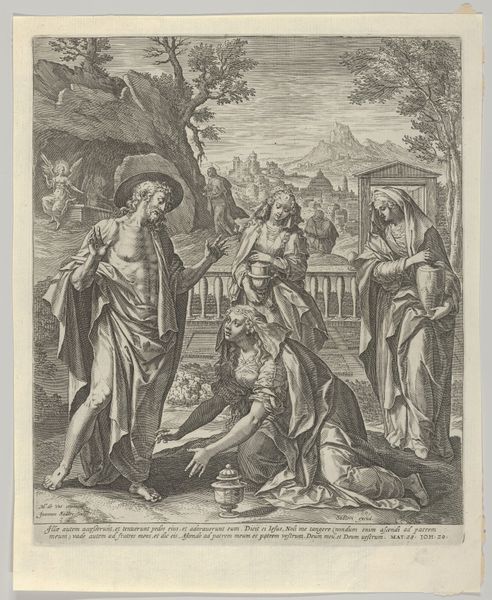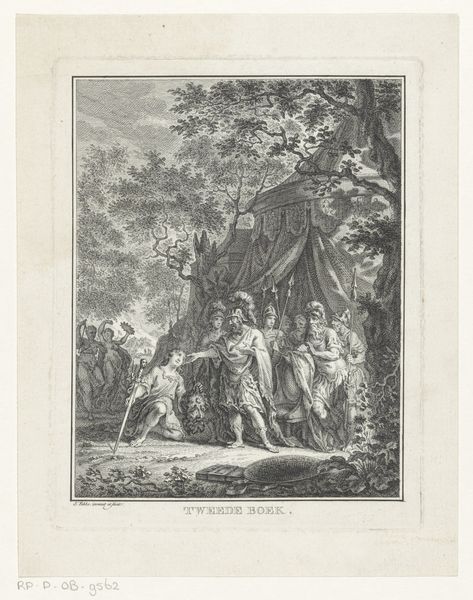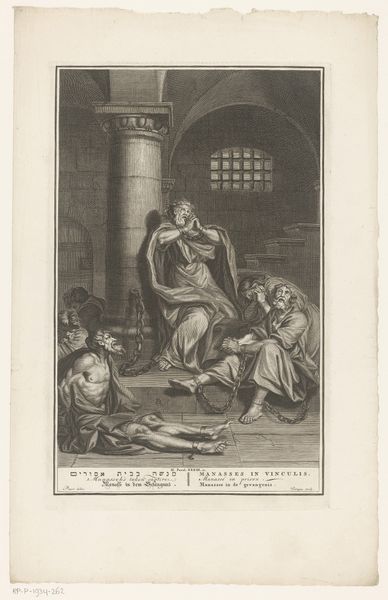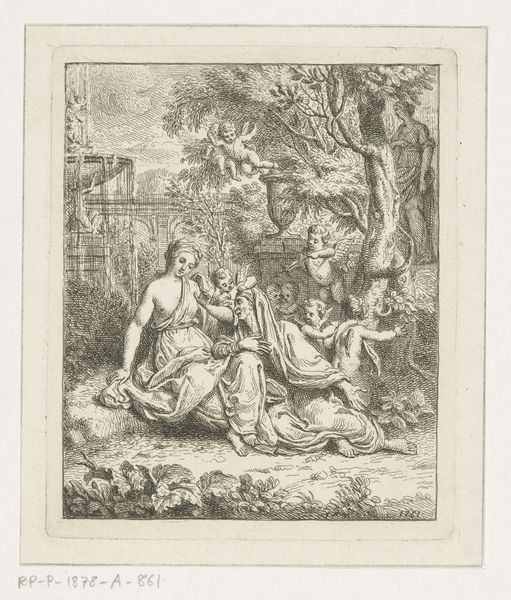
print, engraving
#
narrative-art
#
baroque
#
ink paper printed
# print
#
old engraving style
#
landscape
#
figuration
#
history-painting
#
engraving
Dimensions: height 360 mm, width 229 mm
Copyright: Rijks Museum: Open Domain
Curator: This is "Job op de mesthoop" which roughly translates to "Job on the Dunghill," an engraving attributed to Louis Surugue. The artwork is currently housed at the Rijksmuseum. Created between 1691 and 1733, it exemplifies Baroque artistry through the print medium. Editor: It's striking, isn't it? The texture conveyed by the engraving almost feels tactile, the somber scene unfolding with an intensity I wouldn’t immediately expect from an artwork from this time period. There's something deeply human in Job’s suffering. Curator: Indeed. Focusing on Surugue's choices, it's fascinating how the density of lines is deployed. See the stark contrast between Job's emaciated body and the robes of his companions. That’s an engraver meticulously using their tools, managing the press and papers. We can really see that artisan's skill coming into play here. Editor: Right. Beyond the skillful application of technique, let’s think about what this piece communicates culturally. Job's story, one of intense suffering and unwavering faith, has served historically as a powerful narrative about perseverance in the face of unimaginable adversity, often told to subjugated peoples throughout colonization. I’m also thinking about illness and the representation of bodies considered to be in crisis throughout the Western canon. Curator: It's also quite telling to examine how the visual vocabulary echoes a sense of labor - manual, spiritual. Surugue’s process would have mirrored Job's trial in a sense, demanding endurance and a firm hand to make each mark, layering image and metaphor for viewers of the time. And those viewers, purchasing and possessing such prints, participated in the labor cycle too. Editor: That’s true! This really invites us to consider the layers of social messaging embedded within such Biblical narratives. The power dynamics at play in these relationships — between Job, his friends, his wife. Curator: This exploration shows how even in detailed craft and engravings, there lies deeper inquiry into labor and human interpretation. Editor: Exactly. "Job on the Dunghill" really illuminates history through intersectional dialogues and analyses.
Comments
No comments
Be the first to comment and join the conversation on the ultimate creative platform.
